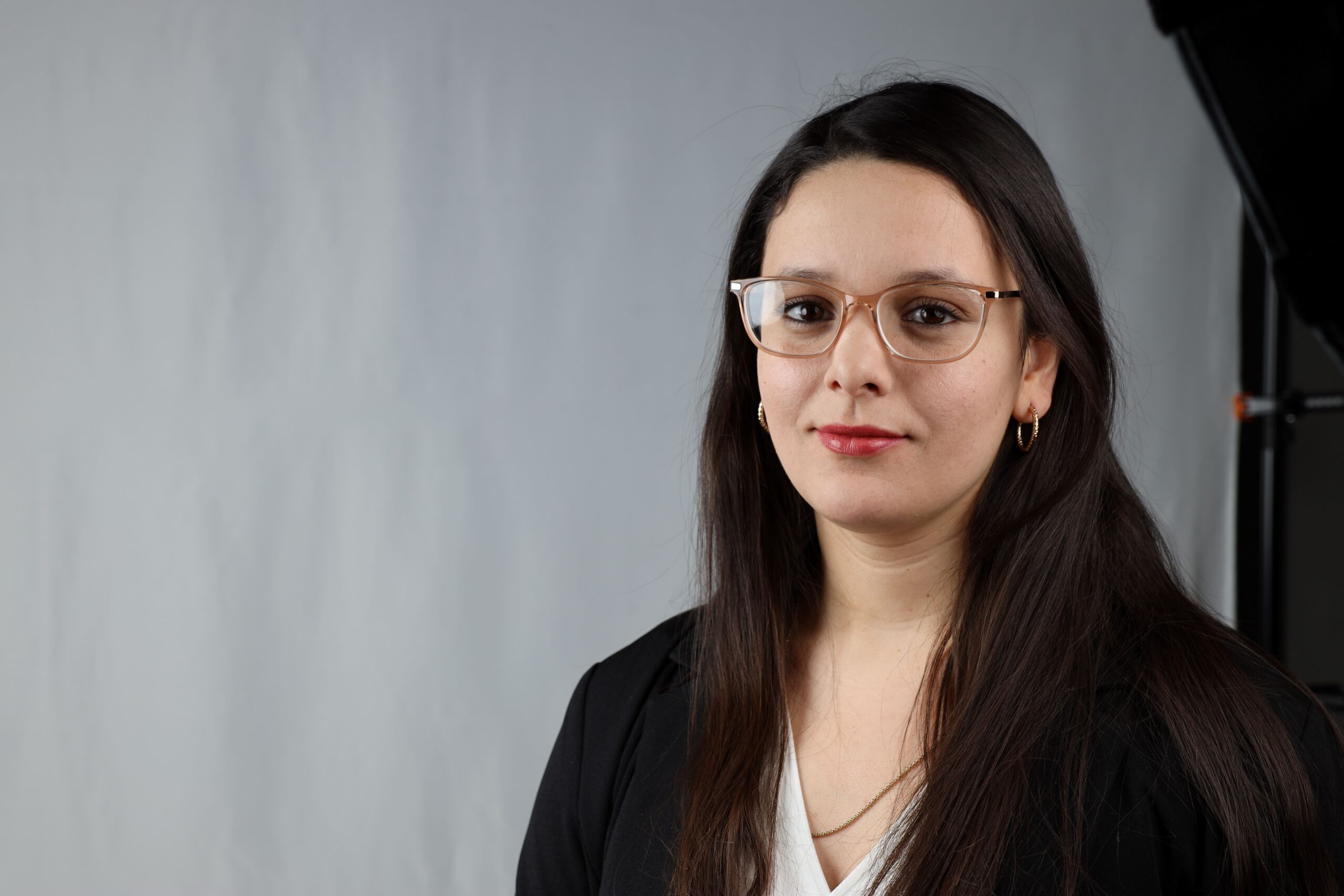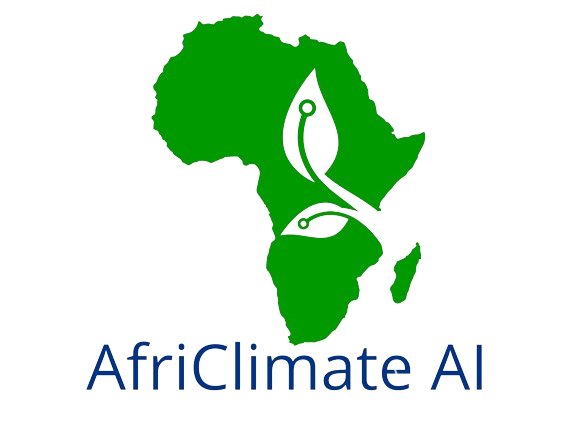
ΑΙhub.org
Harnessing AI for a climate-resilient Africa: An interview with Amal Nammouchi, co-founder of AfriClimate AI
 Amal Nammouchi
Amal Nammouchi
AfriClimate AI is a grassroots community focused on leveraging artificial intelligence to tackle climate challenges in Africa. We spoke to Amal Nammouchi, one of the co-founders of AfriClimate AI, about the inspiration behind the initiative, some of their activities and projects, and plans for the future.
Could you tell us how AfriClimate AI came about – what was the inspiration for starting the initiative?
Everything started last year at the Deep Learning Indaba in Ghana. The Deep Learning Indaba is the largest African AI community gathering and it happens once a year. The spark for AfriClimate AI came from a workshop with the work of one of our co-founders Rendani Mbuvha. Many of us work at the intersection of AI and climate change, and we find ourselves talking about similar issues, even though we were based across the continent or even the globe. This sparked conversations about collaborative solutions to our shared challenges, mainly related to the scarcity of Africa-related data in this area and building research capacity, uniting nine of us to form AfriClimate AI with a clear mission: to create a community of researchers, professionals, and policymakers focused on leveraging AI to address climate issues specific to Africa.
What are some of the activities and initiatives that AfriClimate AI carries out?
In addition to thinking about climate issues more generally, we focus on specific strategic projects. Currently one big focus area for us is climate data scarcity over Africa. Our preliminary research has shown that existing global climate models often fall short for the African context. This is crucial because Africa, despite contributing minimally to climate change, is one of the most vulnerable continents. With AfriClimate AI, we want to use AI to help in climate change mitigation with a focus on the African context. While tailoring our solutions to the diverse needs of different regions across the continent.
We also focus a lot on community and capacity building. In the past year, we’ve focused on outreach to the community and bringing them together. We’ve had a few workshops. The first one was in Nairobi and was part of the African Machine Learning Days. Obviously, there was our recent workshop at the Deep Learning Indaba. We also presented in a workshop at the Hybrid Human AI Systems (HHAI) conference in Sweden. That was mainly focused on our position paper. We also had a workshop in July at the United Nation University Expert AI and Climate Meeting in Bonn, Germany.
Could you tell us a bit about your position paper?
Our position paper provides a preliminary analysis of how climate change specifically impacts Africa. Lots of African countries, for example, are experiencing floods or droughts. Where the economies are based on agriculture, these floods and droughts significantly impact the economy. The position paper looks at how the African continent is impacted by climate change and how we can leverage AI for climate resilience in Africa. We also touch a little bit on the challenges that the continent faces. One of them is that we have an eighth of what is recommended for weather stations, mostly because either they’re out of service or there isn’t enough funding going into the continent to maintain them. I came across one very interesting blog saying that Germany has more weather stations than the entire African continent, which was surprising. And, of course, weather stations allow you to gather the data that you need for your AI models.
In this paper, we detailed where we are when it comes to these climate change challenges and how, as AfriClimate AI, we are trying to mitigate them. Our approach is more directed toward capacity building and grassroots movements of researchers, professionals, and policymakers.

How have you gone about building the community and getting researchers involved?
The spark for AfriClimate AI itself came from another community, the Deep Learning Indaba, which started as a community and is now the largest AI gathering on the continent. These communities and non-profit organisations drive many researchers and professionals.
I think that presenting in different workshops helped grow our community. That’s one of our main outreach channels. Also, a lot of researchers resonated with the mission of AfriClimate AI. We’ve now started recruiting more people for the core team, and we’ve had lots of interest. So, whatever we are doing is working. It’s incredible how far you can go when you resonate about something with other researchers or professionals.
As a core team, we wanted the position paper to be just the start. Now, one of the projects is to elaborate on that paper. We touch on challenges that we’d like to build on, one of which is data benchmarking.
Is that the main project you’re focusing on at the moment?
Yes, that’s one of the main projects.
We are working on several projects at the intersection of climate science and artificial intelligence, specifically on Africa. The first project, launched in February this year, is a weather forecast benchmarking initiative. We aim to evaluate the performance of state-of-the-art weather forecasting models in Africa. We identified a significant gap: the performance data for these African models is either unavailable or not easily accessible. Through this benchmarking effort, we assess the accuracy and reliability of global weather forecasting models when applied to African regions. To enhance the rigour of our evaluation, we incorporate local observational data, enabling us to analyse how these models perform against real-world conditions. This also helps us identify areas where improvements can be made in the training data to refine these models, particularly for African climates.
Building on our weather forecast benchmarking efforts, addressing Africa’s weather data scarcity is crucial for improving model accuracy and enhancing climate resilience.
Our second project is a community-driven one. We aim to make a difference by deploying affordable, automatic weather stations across the continent to collect and share real-time data. Unlike expensive traditional stations, our low-cost, durable equipment can be installed and maintained by local communities. This grassroots solution not only makes data collection more accessible but also empowers communities to actively participate in climate adaptation efforts while feeding valuable data back into our benchmarking project to refine model performance in African regions.
What are your long-term goals and hopes for AfriClimate AI?
That’s an excellent question that we’ve been asked a lot. For us, the first phase is community and capacity building. Then, we hope to progress with projects that give us tangible results.
One example of such a project is to do with early warning systems. For example, there is an insect that one year, due to a cyclone, the population multiplied to billions and travelled from the Arabian Sahara to other parts of Africa, eating most of the crops. The thing is, the authorities could have stopped it if they’d known beforehand. That’s where AI comes in. With forecasting and prediction models, you can build early warning systems to mitigate these potential catastrophes.
If people want to get involved in AfriClimate AI, what’s the best way for them to find out more or to get started?
AfriClimate AI’s journey is just beginning, and there’s room for everyone to contribute. Whether you’re a researcher, developer, or passionate about climate action, we invite you to join us as we tackle Africa’s climate challenges using AI.
Explore our open-source tutorials, collaborate on projects, or follow our updates to stay connected with our growing community. We’re also actively looking for new members to join our mission—if you’re interested in being part of AfriClimate AI, please fill out our recruitment form and get involved.
About Amal
Amal Nammouchi is the co-founder of AfriClimate AI, a community-driven non-profit organization that brings AI-powered solutions to climate challenges across Africa through capacity building, research, and innovation. Amal is currently a graduate researcher at Karlstad University, affiliated with the SOLVE – Solar Electricity Research Centre in Sweden, where her research focuses on building robust optimization and control models for renewable energy communities (RECs) under uncertainty, with the goal of advancing sustainable energy systems.
Amal holds an ICT engineering degree from SUPCOM, the Higher School of Communications of Tunis, with a specialization in Machine Learning for multimodal applications. Her most recent research includes leveraging Large Language Models (LLMs) for transparent and trustworthy decision-making, contributing to the frontier of responsible AI development.
With over a decade of experience in community building and international development, Amal has held numerous leadership roles, including Vice President of JCI El Alia (twice), Chairwoman of IEEE SUPCOM SB, General chair of the IndabaX Tunisia 2019, and Committee Chair at the Deep Learning Indaba 2024, helping foster the next generation of AI talent in Africa.
Beyond academia, Amal is passionate about entrepreneurship, working to translate cutting-edge research into practical solutions that have real-world impact. Her team won first place at the 10th edition of the MIT Energy and Climate Hackathon. Amal has also been recognized for her innovative projects, winning the second award at the EUNICE Innovation Cup and earning the gold medal at I-fest² Projects competition by ATAST.
tags: AfriClimate AI










